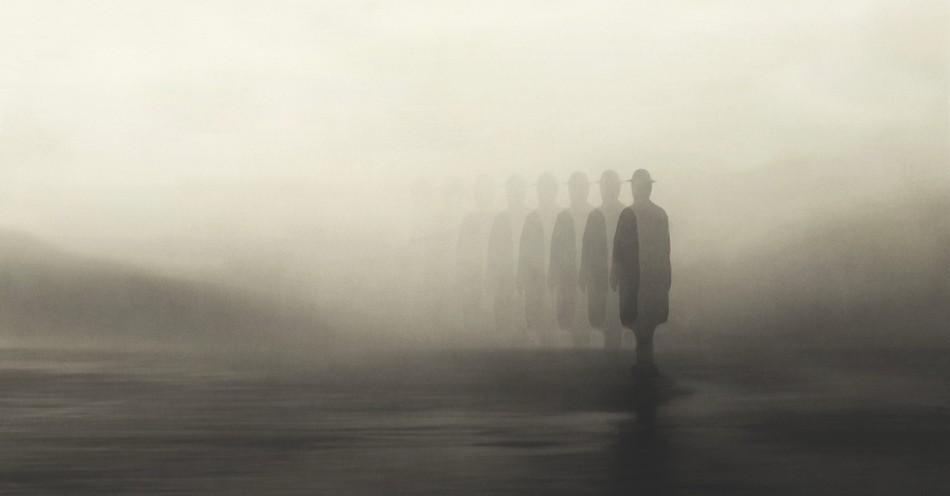The rapture is the idea that believers in Jesus Christ will be caught up or taken away from the earth to be with Him before a period of tribulation and judgment. The term "rapture" itself is not explicitly found in the Bible; rather, it is derived from the Latin word "rapturo," which translates to "caught up" or "snatched away."
It's a hotly debated topic among Christians in the present day, within academic settings as well as in church settings. There are many different views surrounding the rapture, which have been developed by various scholars over time. Depending on the view you hold will affect how you view the events of eschatology. In this article, we are going to be discussing what the Bible says about the rapture.
What Does the Bible Say About the Rapture?
The Bible passages surrounding the rapture include 1 Thessalonians 4:13–18 and 1 Corinthians 15:50–54. In each of these Bible passages, the Apostle Paul gives us vital information surrounding the rapture.
Paul tells us that the rapture will happen quicker than the “twinkling of an eye” as he says,
For the Lord himself will come down from heaven, with a loud command, with the voice of the archangel and with the trumpet call of God, and the dead in Christ will rise first. After that, we who are still alive and are left will be caught up together with them in the clouds to meet the Lord in the air. And so we will be with the Lord forever (1 Thessalonians 4:16-17).
From Paul’s words in 1 Thessalonians 4:16-17, we are told that the Lord will come down from heaven, but He will not physically touch down upon the earth. The Lord will not touch down physically upon the earth until the Second Coming, which is distinct from the rapture of the church.
Many scholars blend the Second Coming of Christ with the rapture, yet these are two distinct events that will occur in the future. In addition to the Lord coming down from heaven, the passages of 1 Thessalonians 4:16-17 tells us there will be a “loud command,” and the voice of the archangel will speak.
While we do not know what this loud command will be, it could possibly be the Lord calling us to come home to Him. Similar to the loud command, scholars are divided on the identification of the archangel, yet most scholars agree that this will be the voice of the archangel Michael.
During the rapture of the church, we are also told there will be the “trumpet call of God.” The trumpet is believed to be a reflection of the trumpet sounds in the Old Testament, which was symbolic of God making an announcement to His people.
After the trumpet call of God, the dead in Christ will rise to meet Christ in the air, followed by believers who are presently alive. The “dead in Christ” refers to believers who passed away before the rapture.
During the event of the rapture, all believers who had died will be resurrected into their glorified bodies. If a believer is alive at the time of the rapture, they will be taken up with Christ, and their body will be transformed into their glorified bodies. Therefore, whether a Christian is alive or dead at the time of the rapture, they will both alike be taken up to be with the Lord.
The rapture of the church will be a quick event, which will happen before the seven-year tribulation. Many scholars have differing views on this subject, especially if one scholar is a covenant theologian whereas the other is a dispensationalist.
Both covenant theology and dispensationalism build their foundation on the Bible, yet they come to different conclusions based on their interpretation of the text.
The Bible college I attended, as well as the seminary I attended, were dispensationalists; therefore, I was taught in accordance with dispensationalism; however, we were also taught covenant theology.
Through my college and seminary classes, as well as through my own personal Bible study, I also came to believe in the teachings of eschatology in congruence to dispensationalism rather than adhering to covenant theology.
According to dispensationalism, the rapture of the church happens before the seven-year tribulation. In this way, the rapture saves believers from having to undergo the Tribulation.
This is in agreement with the statement Paul makes in 1 Thessalonians 5:9-10, “For God did not appoint us to suffer wrath but to receive salvation through our Lord Jesus Christ. He died for us so that, whether we are awake or asleep, we may live together with him.”
From Paul’s words, we can ascertain that God has not destined us for wrath but rather for salvation.
God doesn’t desire His children to go through the terrible and dark days of the tribulation, which is why He will rapture believers before the genesis of the tribulation. This theory is known as the pre-tribulation view of the rapture.
Pre-Wrath & Post-Tribulation Views
Covenant theology teaches a few different views of the rapture, including the pre-wrath view and the post-tribulation view.
Most dispensationalists adhere to the pre-tribulation view of the rapture, myself included; however, covenant theologians will either hold to the pre-wrath view or the post-tribulation view.
The pre-wrath holds to the stance that God will rapture His children out prior to the second half of the tribulation, known as the Great Tribulation.
The pre-wrath view separates God’s wrath from Satan’s wrath as they believe God’s wrath is at the start of the tribulation, yet Satan’s wrath completes the final three and a half years of the tribulation.
This is an erroneous view as the tribulation is made up only of God’s wrath. In other words, only God’s wrath is being poured out onto the world. Satan does not have any control over the tribulation as the events are accomplished by God — not Satan.
The post-tribulation view of the rapture believes the rapture will happen at the end of the seven-year tribulation.
Post-tribulation supporters blend the Second Coming of Christ with the rapture of the church, which is how they develop their theory on the rapture.
These individuals believe God will divinely protect believers throughout the tribulation and then rapture them up to Heaven after the end of the tribulation.
Lastly, the pre-tribulation theory teaches that the rapture happens prior to the seven-year tribulation of God pouring out His wrath upon the earth.
When Will Jesus Return?
From a pre-tribulation view, after the rapture of the church, believers will be taken to heaven, to which we will participate in the Bema seat of Christ (Romans 14:10-12).
The Bema seat of Christ is not a test of salvation but rather a test of how one served Christ during their earthly life. It is to be noted that salvation is never in jeopardy at this time as a person is eternally saved from the time they accepted Jesus as their Savior and Lord.
Once a person accepts Christ, they obtain salvation, and this can never be taken away. The Bema seat of Christ will be a time when believers will be awarded for what they have done as well as rewards will be taken away for what they did not do for Christ.
After the Bema seat of Christ and the end of the tribulation upon the earth, the thousand-year reign of Christ will be established, followed by the New Heaven and New Earth.
During the thousand literal reign of Christ, the Lord will physically walk among His people and live among us.
After the thousand-year reign of Christ, God will establish the New Heaven and New Earth, which will be paradise. There will no longer be any more pain, crying, or death (Revelation 21:4).
While our final destination of living in the New Heaven and New Earth with God may seem a long time away, it is no time for God. The rapture is the catalyst of these future events of eschatology.
Once the rapture happens, we will be on our way to living with God in the New Heaven and New Earth, where there will only be smiles, joy, and love.
As we eagerly wait for the day of the rapture, we need to help others know the gospel by sharing the truth of Jesus’ death, burial, and resurrection (1 Corinthians 15:1-4: John 3:16-17).
For further reading:
What Are Signs of the End Times and the Rapture?
What Is the Millennial Kingdom and Reign?
What Are the Different End Times Opinions Amongst Denominations?
Photo Credit: ©iStock/Getty Images Plus/francescoch




